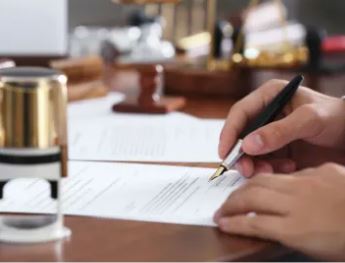
Similar to a Form E, when you file for divorce in Hong Kong and proceed through the court system, there are a number of steps and forms you need to fill out as part of your divorce. One of the key disclosure documents you must fill out is a Form J. A Form J, or a Children’s Form is designed to help you and your spouse and the Court determine the best arrangements for the children. A Form J is therefore an important document that should be filled out with careful consideration and accurate details so that the Court can use this document to determine the best interests of the children. Similar to a Form E, a Form J is sworn and signed by you and should therefore contain truthful and accurate information. As this is a key document in determining custody and access arrangements, it is prudent that you fill out this form with the assistance of your solicitor who can guide you through the process of filling out the form in the most accurate and detailed way. In the event you and your spouse come to an agreement over the children without the need for Court intervention, then a Form J will not be needed. However, if you and your spouse are going through the Court system in order to resolve any custody and access arrangements, the Form J will be mandatory and you will exchange this disclosure document with your ex-spouse.
Let’s go through a Form J for a better understanding of what information and disclosure will be required by you:
Part 1: You and Your Children
In Part 1 of the Form J, you will need to provide general information about you and your children. This general information includes the full name and address of you and your children, their date of birth, age, sex and relationship to you. If there are third-parties involved in the care of your children such as step-parents, grandparents and domestic helpers, you will also need to provide such details including their name and their relationship to the children.
Part 2: Current Living Arrangements
In Part 2 of the Form J, you will need to provide detailed information about the current living arrangements. For example, how much time do the children spend time with you and with the other parent and/or other carers. If you are involved in a new relationship, you will also need to provide details of this new partner. As part of the current living arrangement explanation, you will also need to provide details as to the arrangements for the children when they are with you. For example, where do they sleep, do they share a room, and how long have these living arrangements been in place? During the children’s time with you, do the children communicate with the other parent and if so, how frequently and by what means of communication? How do you and the other parent deal with handovers and what are the logistics of these handovers of the children? Do the children communicate with extended family members when they are with you and if so, how frequently? Other questions that you will need to answer about the children’s arrangements is the type of extra-curricular activities the children are involved in and how often they attend these extra-curricular activities. What kind of support do you or tutors provide to the children regarding their school work? What kind of entertainment activities are your children involved in? Finally, in this section you will also need to detail how the children are cared for when you are working or when you have to attend to work commitments such as after-hours meetings/meals and/or travel abroad.
Part 3: Schooling
In Part 3 of the Form J, you will need to detail the children’s schooling arrangements including the name of the children’s school and their year at the school. You will also need to provide details about how your children travel to/from school, how long it takes to get to/from school and what the after-school care arrangements are for the children when they are with you. If there is special care required for your child due to special needs, this should be detailed in this section. This section is important because this is where you will need to detail your plans about how you have involved and plan to involve the other parent in the decisions related to the children’s schooling. For example, you will need to provide a plan as to how you and your co-parent will make decisions about school, choice of subjects and future career options. Will you and your co-parent agree on attending school functions together such as on parent days and sports days? You will also need to put forth the emergency contact for your children and who would be responsible as the point person should your child fall ill at school or there are emergency issues that need to be dealt with.
Part 4: Health
Part 4 of the Form J is related to your child’s health and medical problems. You will need to detail whether your child suffers from any health and medical problems and if any special care is required for your child. If your child suffers from any physical disability or requires special medication or therapy, this is where you will need to detail the issues and provide transparent information to the Court.
Part 5: Finances
In Part 5 of the Form J, finances become the focus of this section, as finances will be important for the care and future of your child. In Part 5, you will need to detail your income including any bonuses or commissions you may receive as part of your income. If you have received or are receiving government allowances, you will need to identify this source of incoming cash. If you are receiving maintenance from your ex-spouse, you will also need to detail what you have been receiving or are receiving.
Part 6: Future Parenting Arrangements
Part 6 of the Form J is an extremely important section. This is where you should detail what arrangements you would like to see for the children going forward and it is here you should detail what plans you have in place to bring this forward. In this section, you will detail the regular arrangements you propose for the children to spend time and communicate with the other parent including public holidays, school holidays, overnights and overseas trips. If the children are to live with the other parent instead of you, what proposals do you have for yourself in terms of communication and time with the children during public holidays, school holidays, overnights and overseas trips. You will also need to detail what proposals you have to assist the children in spending time and communicating with the other parent and other family members. This is an important section of the Form J because the Court will want to see how cooperative you are and if you are willing to be cooperative in the future. This is the time for you to show that you will do your utmost best to co-parent and be a willing participant in helping your children remain connected to the other parent. As the children’s support group not only includes parents and family members, the Court also wants to know how you will encourage the children to maintain friendships if a move is part of the proposal.
Part 7: Other Circumstances
Finally in Part 7 of the Form J, you will have the opportunity to detail any other circumstances which you believe are relevant to the arrangements of the children, including but not limited to mental/physical disability, mental/physical health and mental/physical abuse or violence. You can also detail any other relevant matters such as issues with a new partner or moving home. Your solicitor should assist you in detailing what is relevant and what necessary details should be provided or not.
Filling out a Form J can be overwhelming as you want to provide as much detail as possible, but you also do not want to overload the Court with too much unnecessary and historical information. It is therefore important that you speak with your solicitor to go through all the details of your case and consider what should or should not be included. Similar to a Form E, it is important to be reminded that you will need to sign this form under oath, thus your document must be truthful and should provide full and frank disclosure.










